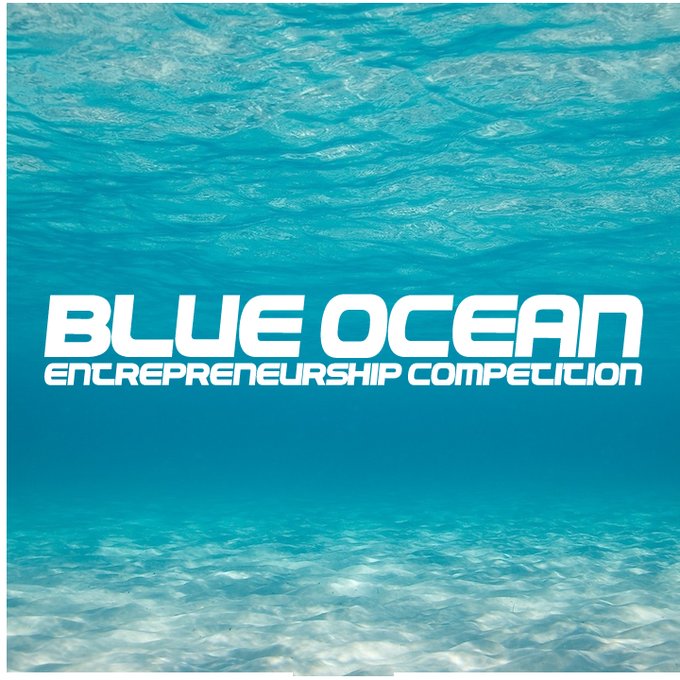
The Blue Ocean Student Entrepreneur Corp. (BOSE) is a non-profit, student-run, national, and virtual high school pitch competition. It has an affiliation with the authors of the books Blue Ocean Strategy and Blue Ocean Shift. The purpose of the organization is to help high school students learn more about entrepreneurship, ideation, strategy and how to pitch an idea. Established in 2015, it has attracted thousands of students from around the world. It is a unique program.
Ted Dacko is the executive director of the program. As an Ann Arbor resident, Ted has served as an entrepreneurial CEO in six different companies and has been in the technology sector for 44 years. He oversees the overall operation of the competition and helps the student executive committee with operations, marketing, recruiting, fundraising and selects the professional judges that judge the competition.
Upon taking over the BOSE, Ted had several critical goals.
But the most essential goal was to triple the participation rate in the
program year-over-year and make sure that students from all high schools across
the US were represented. Ted says: “This was going to be difficult.
As a not-for-profit, we had very limited funding and since this was
student run, we didn’t have experienced people to handle the difficult task of
recruiting.”
Ted discovered Shopwindow though its relationship with helping colleges and universities recruit high school students to the marching, pep bands and concert bands. Ted says: “When I discovered that product, I was impressed beyond words. This was the most creative and effective way of recruiting participants that I had ever seen in my 45 years in the technology industry. Creating visually attractive and personalized messaging using a combination of text messages, website messaging, and video was brilliant.”
So, Ted decided to implement Shopwindow for the BOSE organization.
Ted’s team consisted of high school students. So, he was initially
concerned about how the students would be able to learn and adapt both the
technology and the art of messaging. He quickly discovered that it was
going to be very easy. He adds: “The students instantly grasped the
technology and are able to establish messaging that was compelling to the high
school students that we wanted to attract into the completion. I was
blown away by how well we adopted the technology and how well recruitment
went.”
The BOSE organization provided a flyer to each high school in the
country with the value proposition for the school and the value proposition for
the individual student. There was a “hot word” that the student would
text to a pre-arranged phone number. From there, SW was customized to
capture the right information using interactive text messaging from the student
including name, school, city, state, year of graduation. It generated
customized content for the potential participant to help the student understand
the value of the completion and guide them through the registration process.
The BOSE website provided educational and motivational content that drove
actual submissions for the competition.
Shopwindow also allows for user-generated content that can also be
used for additional marketing purposes.
Ted says” “you start with some idea, turn it into content, use it to
generate interest and traffic and before you know it, your users are generating
content (like videos) that drive even more interest and conversions. That is hard to beat.”
The results were stunning. Year-over-year participation
tripled with little effort on the part of the BOSE student committee members.
And, the students got a great lesson in utilizing technology to solve a
marketing challenge. Ted says: “This could not have gone better. We
offered one hour of training and these students took it from there. If
high school students can do value-added marketing, then professionals should be
able to do it too.”
Ted goes on to say that this is an example of technology helping
technology. He believes that Shopwindow
is a Blue Ocean concept. Shopwindow is
re-inventing the market for consumer facing organizations. It breaks the value-cost trade-off by
providing the most comprehensive way to attract and convert interest into
actual customers and at a cost that is a fraction of what you would pay to weld
together the many other products that you would need to accomplish what
Shopwindow does.
Ted adds: “Shopwindow can be used for all NFP organizations to
help them recruit participants or donors or whatever they are trying to
accomplish. He believes that there is tremendous value to all organizations
that are consumer-facing and have need to create interest and convert that
interest into actual users or buyers. This
is elegant, powerful but simple software that is uniquely packaged for helping
to create demand and convert that demand into users. I have never seen
anything like this before.”
Ted
will definitely continue to utilize the power of Shopwindow into the future
with BOSE. He says: “This product fundamentally changed our entire
competition. We now cannot exist without it”.
The post Blue Ocean Student Entrepreneur Competition Case Study appeared first on Ann Arbor SPARK.
Source: SPARK







